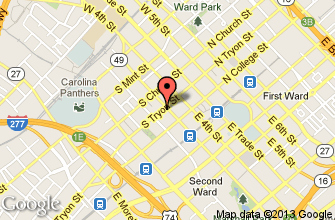News Room
PrintHow Employment Agreements Can Protect An Employer's Intellectual Property And Defend Against Claims of MisappropriationAuthored by: Hunter S. Freeman and Reginald M. Gay
January
9, 2017
At approximately 4.6%, the current national unemployment rate is lower than it has been since before the 2008 recession. Generally speaking, this means that companies are hiring new employees. While hiring new employees is both a positive and necessary step to business growth, it does not come without risk. Often times, intellectual property is an afterthought to the more conventional employment issues raised by the hiring and firing of employees. A well-advised business, however, gives thoughtful consideration not only to these traditional employment issues but also the intellectual property issues involved.
When hiring a new employee, the employer should consider the baggage that a new employee may bring from a previous job. Consideration must be given to the restrictions that may be imposed upon the employee by a prior employment agreement. For example, does the new employee owe any duties of non-competition or confidentiality to his or her previous employer? If so, the employer should determine whether these restrictions would adversely affect the new employee's performance before hiring the new employee. Even if the new employee did not sign a prior employment agreement, appropriate steps may be needed to ensure that the new employee does not misappropriate his or her former employer's trade secrets while carrying out new duties for the company. These steps can be especially important in industries involving technology or research and development, where trade secrets are prevalent.
In addition, the employer should take measures to protect the company's own intellectual property rights from the new employee or his or her subsequent employer. To ensure that the employer owns all of the intellectual property created by the new employee during his or her employment, the employment agreement should include provisions that automatically assign all of the employee's intellectual property rights to the company and appoints the employer as the attorney-in-fact for the employee with respect to the intellectual property created by the employee. Such provisions will protect the employer's ability to prove ownership and obtain statutory rights to the intellectual property, even if the employee leaves or becomes uncooperative. The employer should also utilize non-disclosure provisions that prevent the employee from using or disclosing the employer's confidential and/or trade secret information without the employer's express permission. Such provisions help prevent disclosure of the employer's confidential information and provide the employer with a recourse in the event of such a disclosure.
Similar concerns arise when an employee leaves the company; however, if the employment agreement is drafted correctly, these concerns will have already been addressed. Before the employee's departure, the employer should review all projects on which the employee has worked during his or her employment. By doing so, the employer can obtain the employee's signature on any documents that may be desirable for obtaining statutory protection of any intellectual property created by the employee. If, however, the employment agreement included an automatic assignment and/or attorney-in-fact provision, additional signatures from a departing employee will rarely be needed. The confidentiality provisions will ensure that the employee has returned to the employer all of the company's confidential information, such as lab notebooks, progress reports, open projects lists, etc. To the extent that the departing employee is the sole source of technical information that is necessary to the employer's business, the provision of this information should be required before the employee's departure. The employee should similarly return any phones or other electronic devices along with any passwords to those devices and to any social media or other accounts managed by the departing employee.
While the law does a good job of protecting those who take up-front precautions to protect themselves, it does little to protect those who fail to do so. It is, therefore, important for employers to take a comprehensive approach with their employment agreements by focusing on often overlooked issues such as intellectual property ownership and protection. When drafting an employment agreement, it is important to seek legal advice from a competent and well-versed source. McNair Law Firm is a multi-service firm that employs not only employment lawyers but also intellectual property and other attorneys that can help identify and address all of the issues that should be covered when hiring or firing an employee. Please contact us if you would like to further discuss your company's employment or intellectual protection policies.
_____________________________________________________________________________
If you have questions, please contact the authors of this alert, Hunter S. Freeman, member of the firm's Intellectual Property and Litigation practice groups, and Reginald M. Gay, member of the firm's Employment and Labor and Litigation practice groups.




















